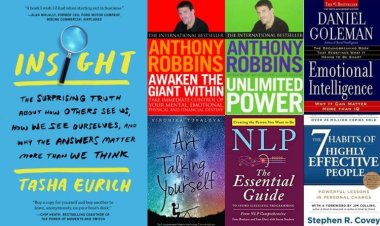13 Prominent Types Of Career Coaching Programmes
Seeking the help of a career coach can provide support, motivation and strategic guidance when planning for the future.

Consulting with a career coach can help you plan for the future with confidence, inspiration, and direction. In the end, this can help you accomplish objectives and advance in your chosen field. If you're thinking about hiring a career coach, it's in your best interest to learn about the various options accessible to professionals like yourself. We outline what career coaching is and cover 13 distinct forms of professional guidance that could be useful to you.
13 types of career coaching programmes
Career coaching comes in many forms and can help you advance in your chosen field. Here are 13 types of coaching courses used to help people like you satisfy your needs and achieve your professional goals:
1. Career discovery coaching
Career exploration coaching is useful since it guides people towards a line of work that is a good fit for their skills and interests. Career coaches work with their clients to identify and articulate their unique set of experiences, abilities, interests, and goals in the workplace. Sessions for career exploration counselling typically last anywhere from 45 to 60 minutes each. You and your career coach can meet as frequently as you like, whether that's once a week, twice a month, or once a month. Discover your ideal profession by working with a coach who specialises in career exploration.
2. Resume development coaching
This expert career coaching service may help job seekers create powerful, organised applications such as resumes, cover letters, and portfolios. Professional resume writers help their clients market their skills and expertise in a way that attracts potential employers. The process of applying for jobs can also be used as a learning opportunity to craft a resume that stands out from the competition.
3. Mentorship
A mentorship approach to career coaching is offered by some professionals with extensive experience in high-stakes or difficult-to-break-into sectors. These mentors provide guidance on how to advance one's profession. Mentorship can help job-seekers obtain insight into their ideal career path and self-assurance that they can achieve their goals.
4. Interview coaching
Coaching for interviews can provide candidates with the knowledge and self-assurance they need to shine throughout the selection process. Coaching for interviews helps job-seekers improve their performance by providing them with the tools they need to confidently discuss their experience and skills during interviews with hiring managers. Candidates will have a better chance of getting hired if they follow this advice on how to promote yourself in a professional situation.
5. Job search coaching
Job-seekers who take advantage of career guidance may learn about more openings and find it simpler to zero in on ideal jobs. Job-seekers might benefit from the guidance of a coach who can show them the ropes when it comes to conducting an effective job search. Professionals can benefit from the guidance of a job search coach in other areas of the process as well, including the creation of resumes and cover letters.
6. Networking coaching
Coaching in networking is useful for professionals since it teaches them to make meaningful connections with others in their sector. When working with clients, coaches who take this tack typically explain the significance of networking and teach their charges the techniques they'll need to do it effectively. With the right kind of help, working professionals can expand their existing networks and find exciting new ways to contribute to their fields.
7. Salary negotiation coaching
Coaching for salary negotiations helps professionals learn to effectively advocate for themselves and their needs. It's possible that coaches who specialise in this area might help their clients develop the skills and self-assurance they need to negotiate better pay, greater responsibilities, or even a new job offer. Candidates can negotiate a reasonable salary and benefits package using this type of course as a guide.
8. Career development coaching
Individuals can benefit from career development coaching by learning how to assess their present performance and where they can make improvements. Career coaches often help their clients network effectively, apply for and land new jobs, boost productivity, and negotiate pay increases and promotions. To help professionals map out and achieve their desired career outcomes, numerous resources exist.
9. Leadership coaching
Individuals who have just been promoted to management positions, or who seek to hone their leadership skills, can benefit from this type of mentoring. Leadership training can help an individual grow in self-assurance and learn effective techniques for supervising groups of experts. These courses often include approaches that can enable leaders with less expertise or confidence effectively support their teams and bring about organisational success.
10. Executive coaching
Coaching for executives can assist those in middle management and above sharpen their skills and strategies. Executives who have recently been promoted often look for this kind of guidance as they settle into their new roles in an effort to improve their work ethic and strike a better balance between their professional and personal lives. Coaching for executives may also help them become more effective leaders inside their organisations.
11. Succession coaching
Succession coaching helps firms adapt to new organisational structures with minimal disruption. These coaches may be able to help new leaders, professional teams, and internal stakeholders devise and implement plans to make transitions as painless as possible. Therefore, succession coaching may help businesses keep their workflow as uninterrupted as possible and keep up a consistent output level while in transition.
12. Team-oriented coaching
Professional teams might benefit from coaching that focuses on building trust and maximising collaboration. Team coaches can aid in this endeavour by giving conflict resolution education and instituting reliable feedback procedures. These services may facilitate the growth of a cooperative culture, leading to more productive teamwork.
13. Success coaching
People can take the first steps towards personal and professional success with the support of this sort of counselling. Success coaching can help people who want to find a better work-life balance or who are dissatisfied with their current jobs. In order to help their clients move past the obstacles that have been holding them back, coaches in this field may employ a number of personal development strategies.













